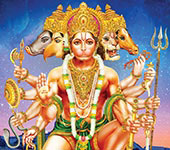The Jagannath Dham, also known as Purushottama Kshetra, holds immense spiritual significance. This sacred place is renowned for its association with Lord Krishna, who is worshiped here as Purushottama (Jagannatha). The name itself, Purushottama Kshetra, gives liberation for anyone who utters it. Long ago, Lord Krishna established a powerful idol made of blue sapphire in this holy region. The idol was so potent that a mere glance at it would free people from worldly bonds. However, over time, the idol became difficult to see for mysterious reasons.
In another Satya Yuga, King Indradyumna sought to reestablish this sacred idol. He ruled from Avanti, now known as Ujjain. King Indradyumna was a deeply religious and courageous ruler. He embodied all virtues and diligently served his teachers and engaged in spiritual gatherings. His sincere efforts led him to desire liberation by controlling his senses. For this, he deemed pilgrimage essential. Thus, he embarked on a pilgrimage, leaving Ujjain with his devoted subjects. They gradually reached the southern sea, now known as the Bay of Bengal.
At the seashore, King Indradyumna observed the majestic waves and a grand banyan tree. He realized that he had reached Purushottama Tirtha. Despite searching extensively for the blue sapphire idol, he could not find it. This realization led him to conclude that the place was incomplete without the divine idol. King Indradyumna decided to please the Lord through penance to obtain His vision and establish the idol with divine consent. He invited kings from all corners to a grand assembly. In this gathering, it was unanimously agreed that King Indradyumna would simultaneously perform two tasks: the Ashwamedha Yajna and the construction of the Lord's temple.
Through King Indradyumna's dedication, both tasks were completed on time. The temple was majestic, but it remained uncertain whether to create the idol from stone, clay, or wood. To resolve this dilemma, the king sought guidance from the Lord once again. The compassionate Lord appeared to him in a dream, saying, 'O King! I am pleased with your devotion and sacrifice. Do not worry. I will reveal how to obtain the renowned idol in this sacred place. Tomorrow, at sunrise, go alone to the seashore. There, you will find a great tree, partially submerged in water and partly on land. Cut it down with an axe. A wondrous event will occur, and from this, the idol will be made.'
King Indradyumna followed the dream's command and went alone to the seashore. He spotted the flourishing tree and cut it down as instructed. At that moment, Lord Vishnu and Vishwakarma appeared, disguised as Brahmins. Lord Vishnu invited them, 'Come, let us sit in the shade of this tree. My companion is a skilled craftsman and will create a perfect idol following my instructions.'
In an instant, Vishwakarma crafted the idols of Krishna, Balarama, and Subhadra. Astonished by this miracle, the king prayed, 'O Lord! Your actions are beyond human comprehension. I wish to know your true identity.' The Lord replied, 'I am pleased with you; ask for a boon.' Upon seeing the Lord and hearing His sweet words, the king was overwhelmed with joy. He praised the Lord fervently and said, 'I wish to attain your rare abode.'
The Lord then promised, 'By my command, you shall rule for ten thousand nine hundred years. After that, you will reach my abode, the ultimate goal. Your eternal fame will endure as long as the sun and moon exist. The pond from your yajna will become a renowned pilgrimage site named after you (Indradyumna). Bathing here even once will lead one to Indraloka. Anyone offering Pind Daan on its banks will redeem twenty-one generations and ascend to Indraloka.'
After bestowing these blessings, the Lord disappeared with Vishwakarma. The king remained in bliss for a long time. Regaining awareness, he placed the three idols in chariot-like vehicles and returned with great celebration. At an auspicious moment, he installed them with great ceremony. Thus, through King Indradyumna's sincere efforts, the darshan of Jagannath became easily accessible to all.
This legend of Jagannath Dham highlights the power of devotion and the divine guidance that shaped this sacred place. King Indradyumna's efforts remind us of the profound connection between faith and fulfillment, illustrating the timeless allure of this holy land.
Comments
Read more comments
Knowledge Bank
Is baby shower and Seemantham same?
A baby shower in western culture is a party given in honor of an expectant mother. Seemantham is prenatal samskara performed in Hinduism for the protection and well-being of the expectant mother and her child. Seematham involves mantras and rituals.
Which yuga was Krishna born?
Krishna was born in the 28th Dwapara yuga.
Recommended for you
Vanaras searching for Seetha Matha were all suddenly transported to the seashore close to Lanka

Narayanam Namaskritya Shlok Meaning

This audio discourse which is part of Bhagavata series tells you the meaning of the shloka Narayanam Namaskritya....
Click here to know more..Vishwanatha Dashaka Stotram

yasmaatparam na kila chaaparamasti kinchij- jyaayaanna ko'pi hi tathaiva bhavetkaneeyaan. nishkampa eka iti yo'vyayasaukhyasindhu- stam vishvanaathama....
Click here to know more..